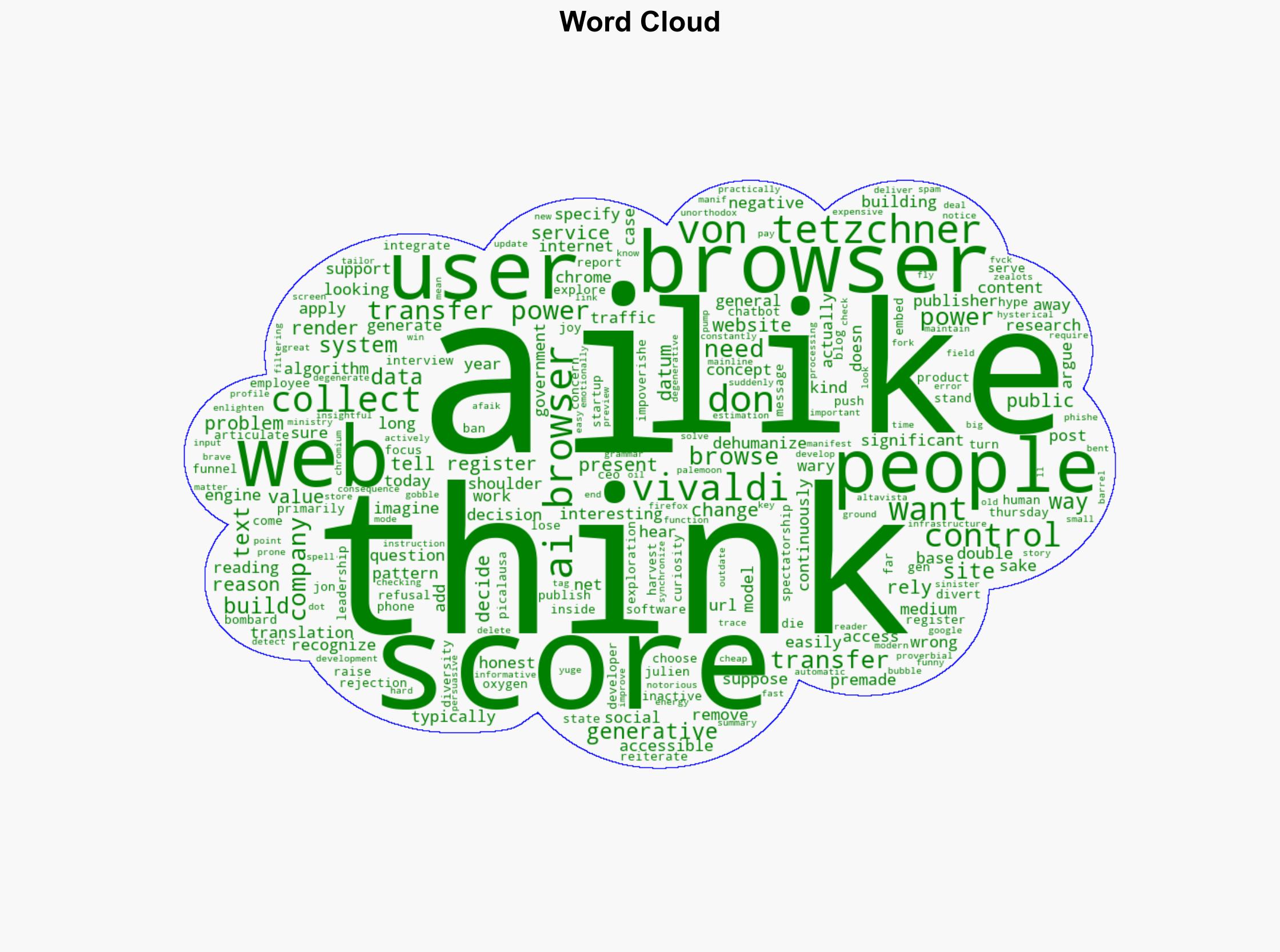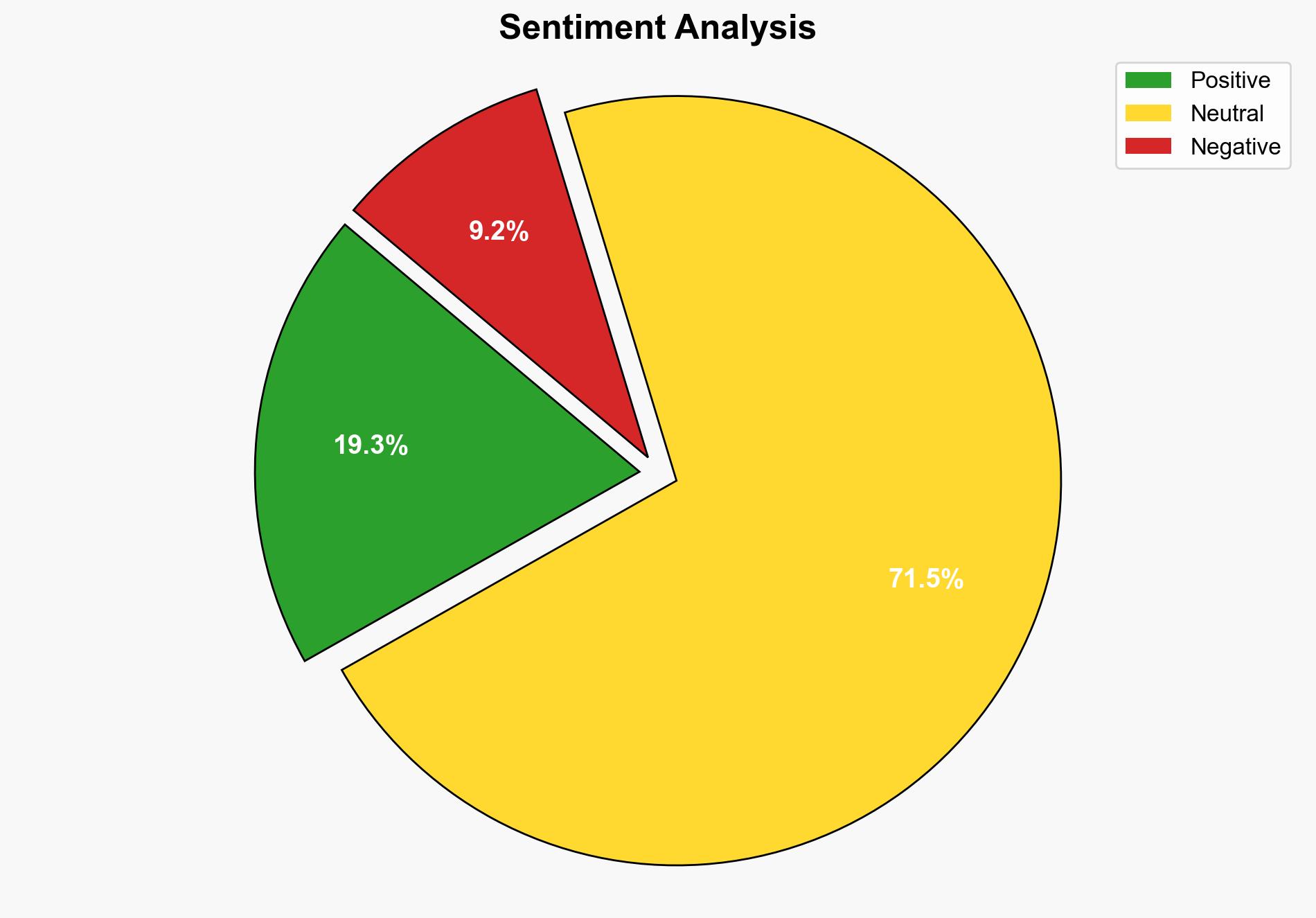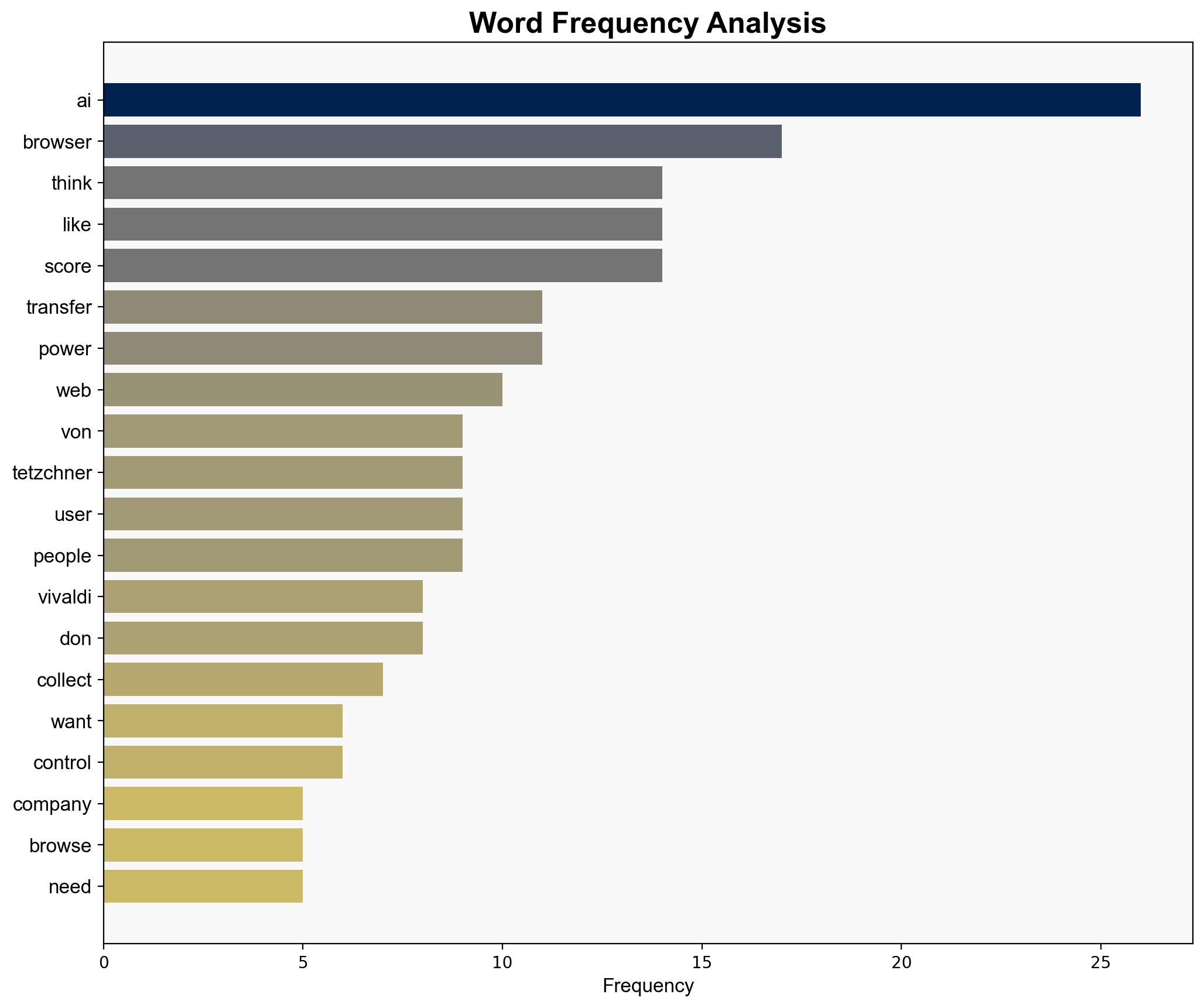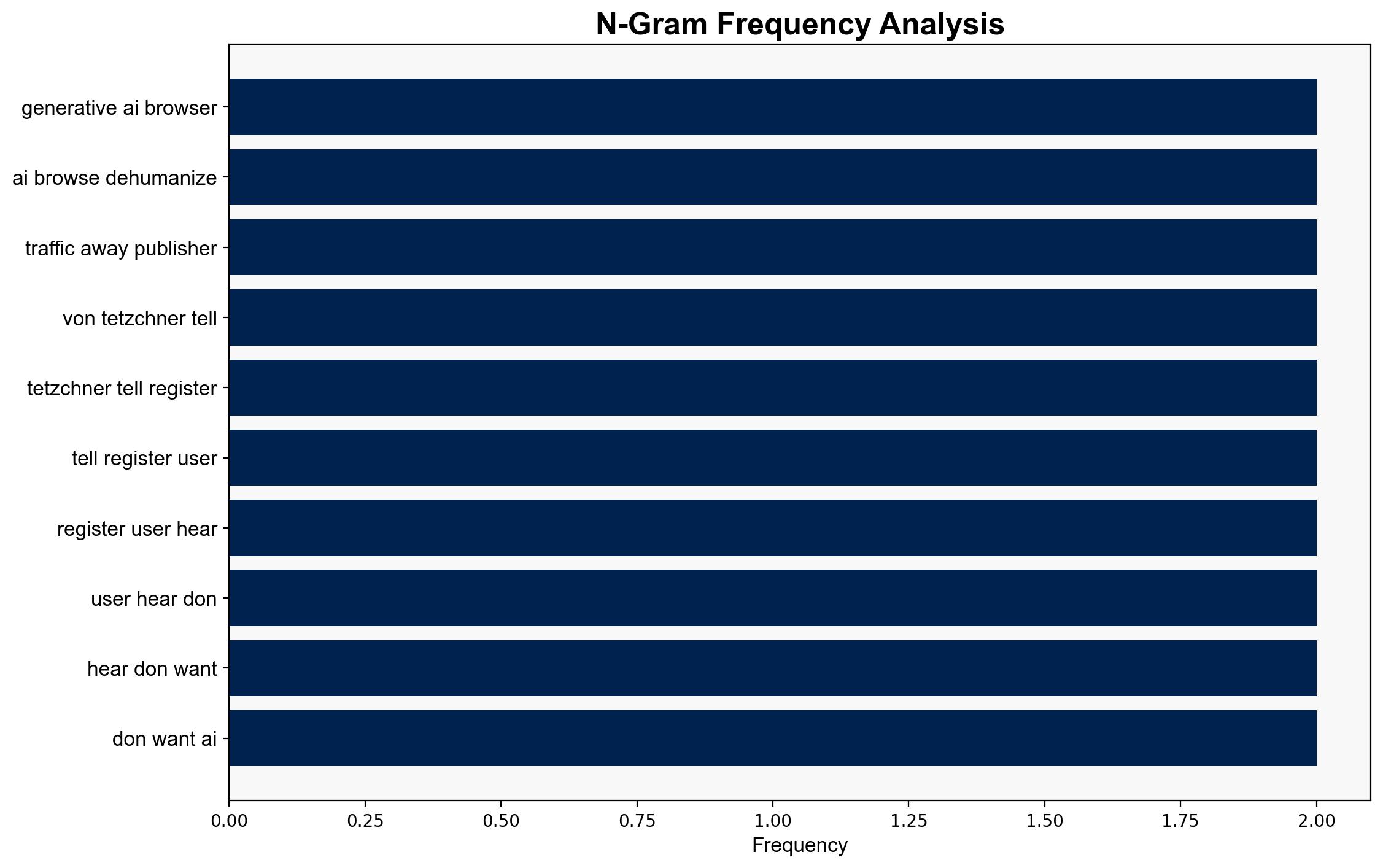Vivaldi Browser Doubles Down On Gen AI Ban – Slashdot.org
Published on: 2025-08-30
Intelligence Report: Vivaldi Browser Doubles Down On Gen AI Ban – Slashdot.org
1. BLUF (Bottom Line Up Front)
Vivaldi’s decision to reject integrating generative AI into its browser is primarily driven by concerns over user data privacy and the potential dehumanization of web browsing. The most supported hypothesis is that Vivaldi aims to differentiate itself in the market by prioritizing user control and privacy over AI integration. Confidence level: Moderate. Recommended action: Monitor Vivaldi’s market performance and user response to assess the viability of a privacy-focused strategy in the browser market.
2. Competing Hypotheses
1. **Hypothesis A**: Vivaldi’s stance against AI integration is a strategic move to differentiate itself in a saturated browser market by appealing to privacy-conscious users.
2. **Hypothesis B**: Vivaldi’s rejection of AI is primarily ideological, rooted in a genuine belief that AI integration would harm the web ecosystem and user experience.
Using the Analysis of Competing Hypotheses (ACH) 2.0, Hypothesis A is better supported. The emphasis on user control and privacy aligns with market differentiation strategies, while the ideological stance, though genuine, may not be the sole driver.
3. Key Assumptions and Red Flags
– **Assumptions**: Vivaldi assumes a significant portion of users prioritize privacy over AI-enhanced features. It also assumes that AI integration inherently compromises user data privacy.
– **Red Flags**: Lack of empirical data on user preferences regarding AI in browsers. Potential bias in assuming all AI applications are detrimental to privacy.
– **Inconsistencies**: The claim that AI dehumanizes browsing lacks specific examples or data to substantiate the impact.
4. Implications and Strategic Risks
– **Economic**: Vivaldi’s stance could attract privacy-focused users, potentially increasing market share. However, it risks alienating users who value AI-driven features.
– **Cyber**: By not integrating AI, Vivaldi may avoid certain cybersecurity risks associated with AI data collection but could miss out on AI-driven security enhancements.
– **Geopolitical**: Vivaldi’s position may resonate in regions with strong privacy regulations, potentially influencing browser policies globally.
– **Psychological**: The narrative of user empowerment and control could strengthen brand loyalty among privacy-conscious users.
5. Recommendations and Outlook
- **Mitigate Risks**: Conduct user surveys to validate assumptions about privacy preferences and AI perceptions.
- **Exploit Opportunities**: Leverage marketing to highlight privacy features and differentiate from AI-integrated competitors.
- **Scenario Projections**:
– **Best Case**: Vivaldi captures a niche market of privacy-focused users, increasing its market share.
– **Worst Case**: The lack of AI features leads to a decline in user base as competitors offer more advanced browsing experiences.
– **Most Likely**: Vivaldi maintains a stable user base with modest growth among privacy-conscious users.
6. Key Individuals and Entities
– Jon von Tetzchner
– Julien Picalausa
7. Thematic Tags
cybersecurity, privacy, technology strategy, market differentiation





